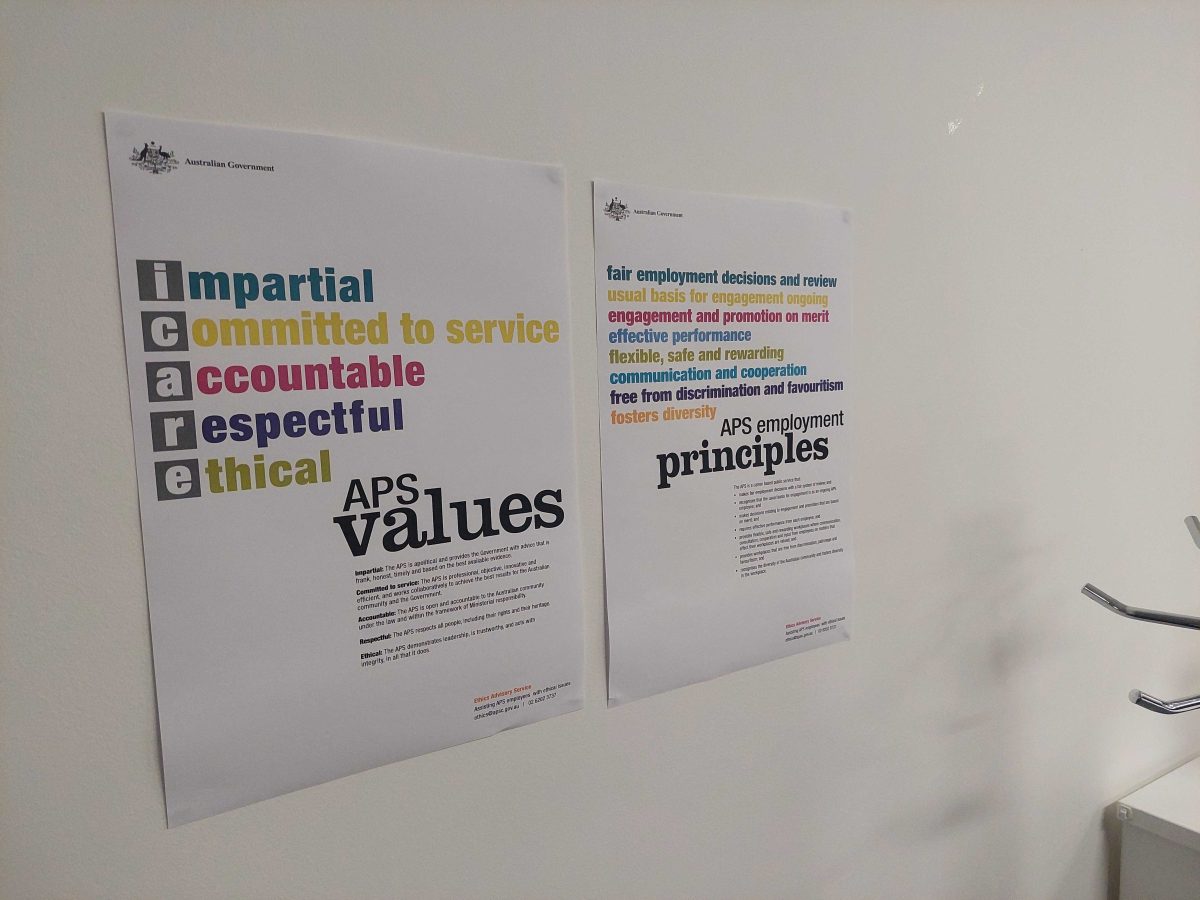
APS Values are getting a reboot. Photo: David Murtagh.
Morning and afternoon teas are already underway in agencies across the Australian Public Service to celebrate the service taking on ‘Stewardship’ as an APS Value.
The latest (sixth) value will kick in across the sector from 11 December.
The new value adds an extra level of integrity and responsibility to all Commonwealth public servants, and enshrine in law an additional sense of duty to their work.
It will be added to the other APS values, which are impartial, committed to service, accountable, respectful, and ethical.
The Australian Public Service Commission has informed the service of the start date, pointing out that it was a priority of the Labor Federal Government to change the Public Service Act 1999 to help the APS better serve the “government, the parliament, and the Australian community” into the future.
It had sought input and consultation from the public service on how to shape the new value.
More than 1500 people responded to the survey – an open consultation process – the APSC ran in seeking help to define stewardship.
“Stewardship goes well beyond effective planning and resource management to ensure high performance and sustainability into the future,” the APSC says.
“It takes on the mantle of ensuring the long-term interests of the Australian community, through fit for purpose and innovative policy advice, regulation and services to meet changing priorities and circumstances.”
The Commission stresses that APS Values are the “fundamental principles that guide the thinking, decisions, actions and behaviours” of APS employees at every level.
Department and agency bosses are now encouraging their staff to embrace the new value, and mini-celebrations are being staged to emphasise the importance of stewardship in joining the list of codes by which they must work.
In a recent circular distributed to all employees, further clarification was given on introducing stewardship and how it required changes to the Commissioner’s Directions.
“The Directions have been amended to set out the standards and outcomes that are required of APS employees and agency heads to uphold the new Value of Stewardship in accordance with the Value statement being included through recent amendments at section 10(6) of the PS Act,” it states.
“The APS Values are enforceable under the PS Act through the APS Code of Conduct (section 13(11)).
“The proposed scope and application requirements in the directions are intended to be clear and consistent with the Value Statement and provide sufficient detail to enable APS employees, managers, HR practitioners and Agency Heads to understand the expectations for upholding and demonstrating the Value, commensurate with an individual’s role and responsibilities.”
Further workforce changes in the APS have also begun, which include the introduction of an APS Location Framework to ensure critical roles are filled in the sector regardless of where suitable candidates live.
“A workforce with the right skills and capabilities is crucial for agencies in the Australian Public Service,” a new missive states.
“Employing staff in a range of locations can help agencies fill critical skill gaps, support connection to Country and community, strengthen diversity and support stakeholder relationships.
“The APS Location Framework equips agencies to use workforce location as a tool to attract and retain people who have the skills the APS needs, now and into the future.
“It connects agency heads and their corporate teams to tools that can support their decisions on appropriate workforce locations within Australia and shows what it looks like to manage a dispersed workforce well.”
The APSC says the framework takes a principles-based approach to provide a model for good practice.
The APS Location Framework aims to support agencies to set or revisit the agency posture on workforce location based on planning and analysis; review practices and processes to deliver on the agency posture while ensuring staff are supported appropriately regardless of work location; and engage with good practice resources to support managers and staff.


















